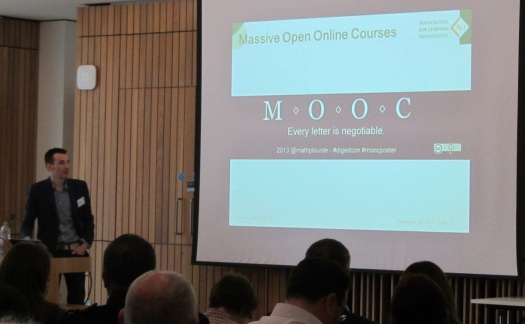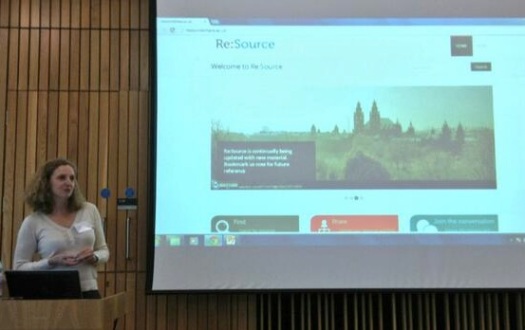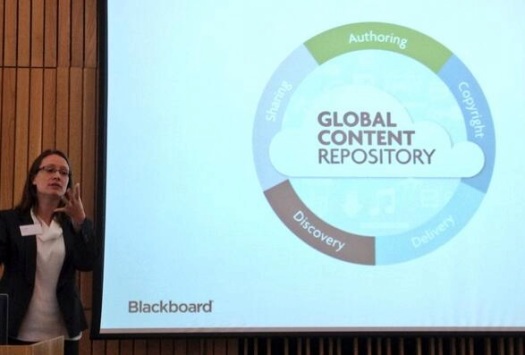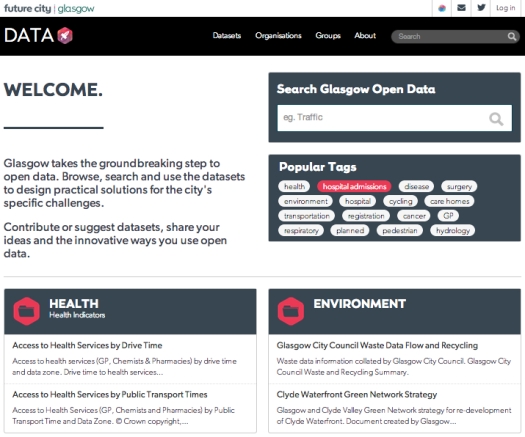(Originally published 4th July 2013, http://blogs.cetis.ac.uk/lmc/2013/07/04/open-scotland-report-and-actions/
“Open Policies can develop Scotland’s unique education offering, support social inclusion and inter-institutional collaboration and sharing and enhance quality and sustainability.”
This was the starting point for discussions at the Open Scotland Summit at the National Museum of Scotland in Edinburgh, which brought together senior representatives from a wide range of Scottish education institutions, organisations and agencies to discuss open education policy for Scotland. Facilitated by Jisc Cetis, in collaboration with SQA, Jisc RSC Scotland and the ALT Scotland SIG, Open Scotland provided senior managers, policy makers and key thinkers with an opportunity to explore shared strategic priorities and scope collaborative activities to encourage the development of open education policies and practices to benefit the Scottish education sector as a whole.
Keynote and Lightning Talks
Dr Cable Green, Creative Commons’ Director of Global Learning opened the summit with an inspiring keynote on “Open Education: The Business and Policy Case for OER”. Cable began by quoting Cathy Casserly and Mike Smith of Creative Commons and the Hewlett Foundation:
“At the heart of the movement towards Open Educational Resources is the simple and powerful idea that the world’s knowledge is a public good and that technology in general and the Worldwide Web in particular provide an opportunity for everyone to share, use, and reuse it.”

Cable went on to discuss the significance of the Cape Town Declaration, the development of Creative Commons licences and the Paris OER Declaration before concluding that:
“the opposite of open is not ‘closed’, the opposite of open is ‘broken’.”
A series of lightning talks on different aspects of openness and open education initiatives in neighbouring countries followed Cable’s keynote; “Open Source in Education” by Scott Wilson of OSS Watch, “Open Data” by Cetis’ Wilbert Kraan, “MOOCs: The Elephant in the room?” by Sheila MacNeill, also of Cetis, David Kernohan of Jisc presented the HEFCE funded UKOER Programmes, Tore Hoel of Oslo and Akershus University College introduced the Nordic Open Education Alliance, and Paul Richardson presented the perspective from Wales.
Challenges, Priorities and the Benefits of Openness
During the afternoon participants had the opportunity to break into groups to discuss issues relating to openness, and how greater openness could help them to address their current strategic priorities and challenges.
The key issues raised included the following:
There are compelling arguments that old models for publishing research and content are outdated. New models are needed and again the arguments for these are compelling, however these new models require changes in attitude and practice. University business models don’t necessarily need to be built on sale of content, instead they can be built on access to great faculty, support, facilities, maximising efficiency through collaboration, etc. There is a lot of insecurity in the sector, staff are worried about their jobs, so there needs to be clarity about their roles and responsibilities and what they are paid to do.

Both within and between organisations there are different perceptions of “open”. For example, quality and assessment bodies have increased external openness by sharing assessment criteria, however due to confidentiality agreements institutions have to limit the data that is available to the public.
There is still a tendency to release OER under restrictive open licences, limiting the ability to re-use, revise, re-mix, re-distribute the new resource. One way to overcome the “closed mind” mentality is to develop policy to support openness, however open doesn’t equal free or without cost, investment is required to make resources open.
Openness is not always recognised, there are pockets of open activity throughout Scotland but these are not joined up. E.g. there are good examples of long-standing open practise among public libraries.
Lack of quality assurance is still raised as a barrier to OER. Cable Green suggested there needs to be a shift in attitude and culture from “not invented here to proudly borrowed from there”. Under Creative Commons licence, resource creators can invoke a non-endorsement clause in situations where an original work is re-purposed but the originating authors does not approve of the repurposed work.

Learners are co-creators of knowledge. How do we engage them? Learners, rather than institutions need to be central to all discussions relating to open policy and practice.
What can Scotland learn from other countries? The UKOER programme evidenced interest in OER and willingness to change practice south of the border. How can Scotland learn from this and use this experience to springboard ahead? There are parallels between Scotland, the Nordic Countries and the devolved nations, is there scope for working collaboratively with other countries?
How can open education policies and practices address the “Big Ticket” government agendas? Post 16 educations, widening access, knowledge transfer, driving changes in curriculum models, school – college – university articulation.
The education sector is undergoing a period of massive change and it is difficult to cope with additional new initiatives and agendas. However the sector can also capitalise on this period of change, as change provides opportunity for radical new developments.

At the school level the curriculum for excellence is changing the way children think and learn and universities and colleagues need to be ready for this. How can openness help?
Funding has been cut drastically in the FE sector. Does this mean that fewer students will be taught or that colleges need to be smarter and make greater use of open educational resources?
Articulation could be key to promoting the use of OER in Scotland. Many HEIs have produced resources for FE – HE articulation that could be released under Creative Commons licences.
An Open Education Declaration for Scotland
 Using the UNESCO Paris Declaration as a starting point, the groups explored the potential of developing a Scottish open education declaration.
Using the UNESCO Paris Declaration as a starting point, the groups explored the potential of developing a Scottish open education declaration.
There was general agreement that the Paris Declaration was a “good thing” however many participants felt it was too focused on OER and that a Scottish declaration should encompass open education more widely.
In addition, the Paris Declaration focuses on “states”, a Scottish declaration would need to define its own stakeholders. It would also be beneficial to develop a common vocabulary (e.g. OER, open education, open learning, etc.) to enable effective communication and identify actions that move us forward.
While there was agreement that the statements of the Paris Declaration were beneficial, it was felt that a degree of contextualisation was required in order to demonstrate these statements and principals in action. One group suggested that it might be useful to have a grid of the Declaration’s statements that stakeholders could fill in to provide evidence of the statements in action. Cable Green added that projects are on going internationally to implement specific actions from the Declaration and suggested that Scotland might consider selecting one or more statements to take forward as actions.
Actions and Deliverables
Action 1 – Establish a working group, similar to Wales and the Nordic countries, that can stimulate research in the area of open education and inform future Government white papers. Cetis, SQA, Jisc RSC Scotland and the ALT Scotland SIG to discuss taking this forward.
Action 2 – Invite participants from those nations that are further ahead of Scotland in promoting the open Agenda. Work with the other devolved nations in the UK.
Action 3 – Use the working group to focus on key Government priorities and agendas, e.g. learner journeys, articulation, work based learning, knowledge transfer.
Key Deliverable 1: A position paper providing evidence of the benefits of openness with examples of how these can impact on Government priorities. (Cetis and the ALT Scotland SIG chair to meet in late July to begin work on a first draft. All drafts will be circulated publically for comment and input.)
Key Deliverable 2: A Scottish Open Learning declaration (including topologies, grids and action focussed statements).
Key Deliverable 3: Government policy on open education. This will require stakeholder groups to state how they will engage with and contribute to the implementation of the policy.
Continuing the Discussion
All these points are open to discussion and we would encourage all interested parties to contribute to the debate. Please feel free to comment here, or to contact the event organisers directly at the addresses below. If you blog or tweet about Open Scotland, or any of the issues raised as a result, please use the hashtag #openscot so we can track the discussion online.
Phil Barker, phil.barker@hw.ac.uk; Lorna M. Campbell, lorna.m.campbell@ilcoud.com; Linda Creanor, l.creanor@gcu.ac.uk; Sheila MacNeill, sheila.macneill@me.com, Celeste McLaughlin, Celeste.McLaughlin@glasgow.ac.uk, Joe Wilson, joe.wilson@sqa.org.uk.
Resources
Open Scotland Overview: http://blogs.cetis.ac.uk/lmc/2013/05/03/open-scotland/
The Benefits of Open Briefing Paper: http://publications.cetis.ac.uk/2013/834
Open Scotland Presentations: http://wiki.cetis.ac.uk/Open_Scotland
Open Scotland Videos: http://www.youtube.com/user/CetisUK
Open Scotland Storify: http://blogs.cetis.ac.uk/sheilamacneill/2013/06/28/open-scotland-the-twitter-story/
Acknowledgements
Cetis would like to thank the following people for making the Open Scotland Summit possible: Phil Barker, Andrew Comrie, Linda Creanor, Martin Hawksey, Cable Green, Sheila MacNeill, Celeste Mclaughlin, Joe Wilson.
Thanks also to our presenters Cable Green, Tore Hoel, David Kernohan, Wilbert Kraan, Sheila MacNeill, Paul Richardson, Scot Wilson.
Arran Moffat and GloCast recorded and edited the presentations and valiantly attempted to stream Cable’s keynote through three foot thick tower walls!
And finally….
A word from one of our participants:
Now is the right time to push the open agenda forward. Scotland hasn’t missed the boat, sometimes it’s good to wait for the second wave.
















 Using the UNESCO
Using the UNESCO